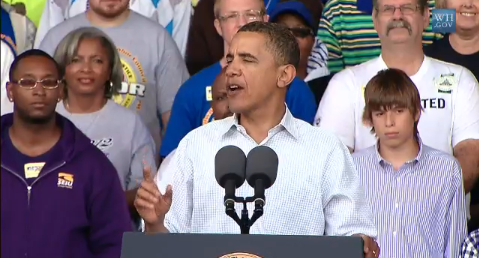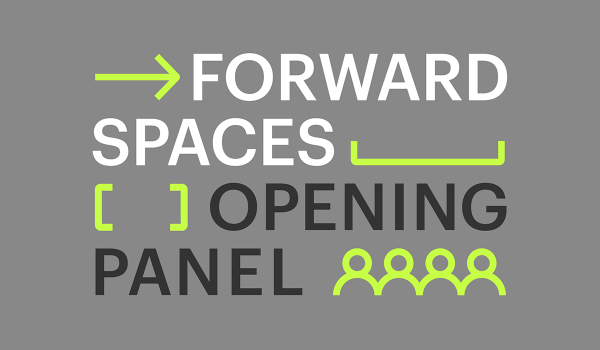Labor Day is tough when you’re unemployed. It’s a day off from nothing, an extra day of waiting to hear back, a barbecue, for what? With the unemployment rate so high here in the States, one imagines that Labor Day had a depressingly irony-tinged feel to it this year, for about one in every ten citizens of the country. For this very reason, President Obama went to Milwaukee, Wisconsin, to speak to a bunch of AFL-CIO people at “Laborfest.” With his sleeves rolled up and his top button un-buttoned, a business-casual Obama made the case for another, smaller stimulus package, in front of a bunch of union guys (and a kid with a Justin Bieber haircut), praising the strides made by the organized labor movement in the 20th century. The President spoke off the cuff a couple times; Secretary of Labor Hilda Solis opened up her speech by asking “Is labor in the house? I can’t hear you! Is labor in the house!?!?” Laborfest was, needless to say, pretty wild.
In light of a depressing Department of Labor report from August, and perhaps in response to criticism that he has not done enough to turn the economy around, the Obama administration is pushing for $50 billion in infrastructure spending to improve roads, railways, and runways, and put people back to work. The administration claims that the $50 billion could be fully funded by plugging up some corporate tax loopholes (according to some, it’s the domestic manufacturing deduction for oil and gas companies, not a hard political target these days). This, of course, shouldn’t stop Republicans from saying the bill doesn’t do anything of the sort. Republicans have become so good at calling any tax increase on major corporations an attack on small business that it’s somewhat inevitable this bill will get portrayed as typical tax-and-spend-liberal behavior, regardless of financing possibilities. In fact, problematic Republican epistemology was part of Obama’s speech in Milwaukee. “If I say the sky is blue, they say ‘no.’” quipped the President, which got him a good amount of coverage, for finally firing back. He went on, “If I said fish live in the sea, they’d say ‘no.’”
Soon-to-be Speaker of the House John Boehner blames the ongoing recession on an unstable economic environment for small business owners. In John Boehner’s mind, a small business owner would be reluctant to hire new staff because perhaps the Obama administration would make them buy expensive health insurance, or raise payroll taxes on them. This, and nothing else, is to blame for current economic woes. It’s not hard to imagine what innovative policy recommendations Boehner has in mind. Boehner’s argument is compelling not only because it appeals to the myth of America as a nation of shopkeepers, but it is also unfalsifiable, and maybe in some ways, self-fulfilling. It’s also utter nonsense. After all, the industry most heavily regulated by Obama administration policy — finance — is one of the only growth industries these days. And isn’t this the problem that neither the Obama administration nor a Republican House can offer a solution to?
Decades of deregulatory policy moved manufacturing to the Global South, decimated the labor movement, and made the casino capitalism of investment banking and hedge funds a way of life. It also helped corporate giants like Wal-Mart take market share away from plenty of real small business owners, not just the imaginary ones that exist inside John Boehner’s orange head. Obama claimed, during his speech in Milwaukee, that special interests in Washington talk about him like he’s a dog. He’s been battling corporations in Washington on behalf of the working man, he claims. But to what extent has he really been doing that? In today’s Washington how much can someone really fight corporations on behalf of labor? Obama’s fun, folksy speech to AFL-CIO union members in Milwaukee was clever politics in a run-up to midterm elections, but it certainly isn’t a sign of great things to come for organized labor. Let’s just get that out of the way.
What the speech was, though, was a great argument for revamping our transportation infrastructure in the 21st century, and putting America’s infrastructure at the top of the pile once again. Should he get this done, aside from putting Thomas Freidman out of a job, we would have a competitive, innovative, shiny, new nationwide transportation infrastructure. He plans on rebuilding 150,000 miles of roads, 4,000 miles of railways and “advance a next-generation air-traffic control system to reduce flight-times and delays for American travelers.” High-speed rail funding was in there somewhere, too, and received thunderous applause. More importantly — and more emblematic of the Obama administration’s approach to creating a more limber, smarter federal government — a major part of the President’s proposal is a national infrastructure bank, which would depoliticize infrastructure spending, target it towards the most profitable and efficient projects, streamline the spending, and allow the government to leverage private financing options for infrastructure projects in the future.
While Paul Krugman isn’t very impressed with the plan, that’s only with regard to the size of the spending, which pales in comparison to the initial stimulus bill, which Krugman also didn’t think was big enough. The implications with regard to governance could be more important and longer lasting, and that should be our takeaway from Obama’s comments on Monday, at least here at Urban Nation. As Krugman points out, and anyone who follows the news could tell you, it is tremendously unlikely that any new spending bills will pass between now and November, and much less likely after that. But something like the national infrastructure bank — which, again, would require a great deal of spending — could be transformative in the long run, ending a system of transportation spending that was little more than pet projects and pork barrel spending, and reframe the transportation debate around what it truly is; a matter of national interest.


_600_350_80_s_c1.jpg)













